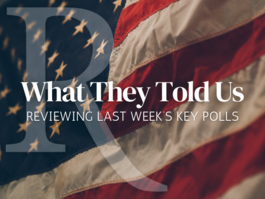Big Labor Is Humbled by Blanche Lincoln's Win
A Commentary By Michael Barone
How bad a defeat did labor unions suffer when Sen. Blanche Lincoln defeated their candidate and won the Arkansas Democratic runoff last week?
That's like asking how Custer fared at Little Big Horn.
Like Custer, the unions bet heavily, putting something like $10 million into Arkansas to support Lincoln's challenger, Lt. Gov. Bill Halter, since he started his campaign in early March. And they did so for good reason.
Union leaders desperately need Congress to pass their card check bill, which would effectively abolish the secret ballot in unionization elections. Card check would allow union thugs -- er, organizers -- to collect signatures on cards of a majority of employees and then, presto, the union would be recognized as a bargaining agent, and dues money would come pouring in.
It isn't now, at least at the rate union leaders would like. Last January, the Bureau of Labor Statistics reported that union membership in 2009 was at an all-time low since the 1930s. Only 12 percent of wage and salary workers were union members, and the number of union members dropped 771,000 between 2008 and 2009.
And, for the first time in history, more union members (7.9 million) work in the public sector than the private sector (7.4 million). Only 7.2 percent of private-sector workers are union members, a huge drop from the peak figure of 28 percent in the mid-1950s.
Moreover, unions aren't picking up many young workers. The BLS reports that 16.6 percent of workers 55 to 64 years old are union members. That's compared to only 4.7 percent of workers 16 to 24.
Union leaders spent some $400 million in the 2008 campaign cycle to elect Barack Obama and Democratic candidates for Senate and House. They got their wish: Obama won, House Democrats gained a solid majority and, once Al Franken was seated last July, there was a 60-vote Democratic supermajority in the Senate. There was speculation in sympathetic blogs about how many Senate Republicans would join the Democrats in passing card check and sending it to the president for his signature.
But politicians don't always stay bought. Every Democratic senator but one (who was out sick) voted for cloture to consider the card check bill in 2007, including Blanche Lincoln. But that was when it was sure to be vetoed by George W. Bush.
After the 2008 elections, Lincoln undoubtedly started to hear constituents in Arkansas -- including, undoubtedly, top management at Wal-Mart and Tysons Food, who don't want unions to do to their firms what the United Auto Workers did to General Motors and Chrysler. Polls showed large majorities of the national electorate opposed to eliminating the secret ballot. By January 2009, Lincoln was saying she didn't think "there is a need for this legislation right now."
She wasn't the only Senate Democrat to take that view. Her Arkansas colleague Mark Pryor, re-elected without opposition in 2008, said he wouldn't co-sponsor card check again. Card check slowly died.
Union leaders are under no illusion that there will be more Democrats in the next Congress than in this one. But they think far ahead, and they decided to oppose Lincoln to teach every Democrat a lesson: If you oppose big labor, we will end your career. Whether they persuaded Halter to run or just hitched a ride on his last-minute candidacy, they went all-in for him.
They weren't swayed by arguments that a primary fight would weaken the Democratic chances in the general election. Polls showed both Lincoln and Halter well behind Republican Rep. John Boozman anyway. The idea was not to win the seat for a Democrat, but to teach Democrats that they had to back card check or suffer political death.
Despite Halter's considerable political skills, the unions fell short. In the May 18 primary, Lincoln was forced into a runoff, as she led Halter by only 2 percent. In the runoff, she ran against "outside interests" in a state where only 4 percent of workers are union members. It was enough to give her a 52 percent to 48 percent victory.
Lincoln's victory removes the credibility of the unions' threat to end the careers of Democrats who don't do their bidding. The unions rode into Arkansas like Custer rode into Little Big Horn, and unlike Custer they managed to ride out -- but without the scalp they were desperately seeking.
Michael Barone is senior political analyst for The Washington Examiner. He can be contacted at mbarone@washingtonexaminer.com.
COPYRIGHT 2010 THE WASHINGTON EXAMINER
DISTRIBUTED BY CREATORS.COM
See Other Political Commentaries
See Other Commentaries by Michael Barone
Rasmussen Reports is a media company specializing in the collection, publication and distribution of public opinion information.
We conduct public opinion polls on a variety of topics to inform our audience on events in the news and other topics of interest. To ensure editorial control and independence, we pay for the polls ourselves and generate revenue through the sale of subscriptions, sponsorships, and advertising. Nightly polling on politics, business and lifestyle topics provides the content to update the Rasmussen Reports web site many times each day. If it's in the news, it's in our polls. Additionally, the data drives a daily update newsletter and various media outlets across the country.
Some information, including the Rasmussen Reports daily Presidential Tracking Poll and commentaries are available for free to the general public. Subscriptions are available for $4.95 a month or 34.95 a year that provide subscribers with exclusive access to more than 20 stories per week on upcoming elections, consumer confidence, and issues that affect us all. For those who are really into the numbers, Platinum Members can review demographic crosstabs and a full history of our data.
To learn more about our methodology, click here.



